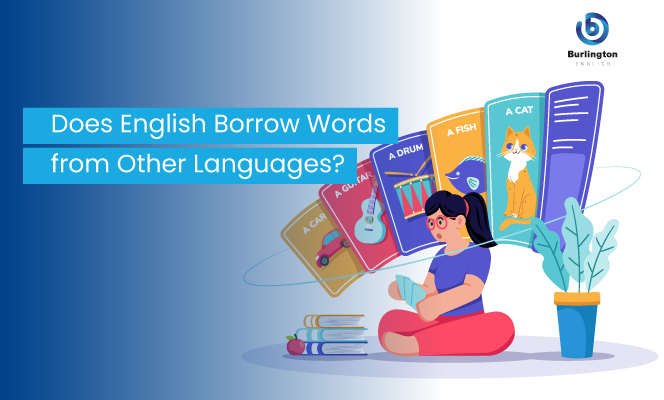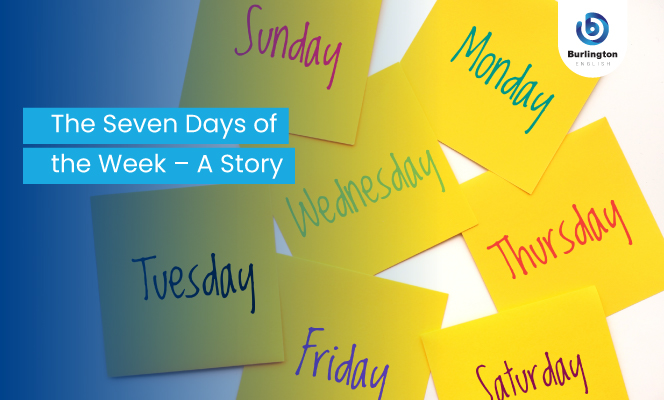I sat on my verandah sipping a cappuccino and eating a croissant while listening to music from my favorite opera.
Do you notice anything in particular about the sentence above? That’s right, it’s an English sentence that is made up of words that aren’t originally English! Verandah, cappuccino, croissant, music and opera are all words from other languages. There are thousands of words in English that are actually from (or have originated from) a different language altogether.
Loan words are words that are borrowed from a different language and used as is while speaking English. Other English words may not be exactly the same in another language, but their root or origin is.
Let’s look at some of these words in more detail.
Spanish
There are several words used regularly in English that are taken from Spanish – either directly or with slight modifications. These could be food-related words: salsa, tapas and nachos; or the names of animals: alligator (el lagarto), cockroach (cucaracha) and mosquito. Many of the names of states and cities in the US also come from Spanish: Utah, Florida, Los Angeles and San Diego to name but a few. Other examples of Spanish words used in English include macho, plaza and fiesta.
French
A large number of English words come from French too. Words like deja vu, croissant and hotel are some common loan words from French. Did you know the words salon, entrepreneur, apostrophe, debris and champagne are loan words too? Some words that are easy to identify as French loan words are chic, faux, chauffeur, fiancé and elite.
Italian
We all know that words like opera, macaroni and cappuccino reached the English language directly from Italian. But Italian has contributed many other words to English too – especially musical, culinary and medical terms. Bandit, bank, studio, influenza and piano are some more examples.
German
English has also borrowed many words from German, some of which are used in daily conversation and others in more specialized areas such as science, literature and psychology. Some examples of German loan words include kindergarten, angst, wanderlust, spritz, kaput and strudel.
Hindi
Unsurprisingly, a large number of Hindi words also entered the English language during the hundreds of years of British occupation. Words like veranda, dacoit, bangle, cot, chit, bungalow, chutney and shampoo – or slight variations of them – were all borrowed from Hindi.
Japanese
This one is easy – you already know that sushi, sake, manga and origami are Japanese loan words. But did you know that tycoon, emoji and karaoke are also words that are originally from Japanese?
Arabic
Arabic is one of the most widely-spoken languages in the world and it has made many significant contributions to the vocabulary of many different languages including English. Words like algebra, alchemy, kebab (also in Persian and Urdu), halva, caravan and cotton are words derived from Arabic. Harem, sultan and lemon are also loan words from Arabic.
Persian
Similarly, Persian has made important contributions to the vocabulary of many languages. You were most likely already aware that words like bazaar and pajama came to English from Persian. Did you know that shawl, kiosk, pistachio, serendipity and caviar did too?
Dutch
There are many words from Dutch in the English dictionary. You might be surprised to learn that frolic, boss, mannequin, bundle, cookie, cruise, knapsack, pickle and waffle are all of Dutch origin!
Chinese
We know that the names of many of our favorite food-related words are from Chinese: dim sum, bok choy, chowmein, and wok. What’s not as well-known is that other words in English like ketchup and lychee also trace their roots to Chinese.
Greek
Words like phobia, galaxy, marathon and architect are some examples of words that have their roots in Greek. Then are many English words that were formed by combining Greek roots and affixes to make new words.
For instance, there are several words in English that begin with tele which is a prefix that means long distance. The Greek word phōnē means voice or sound. So now you know how the English word telephone was created!
The English word pandemic (that we are now very familiar with) also comes from the Greek word pandemos – pan: all + demos: people
Latin
While many of us cannot claim to know much Latin today, thousands of English words originated from it. For instance, the word vox which is Latin for voice or to call is linked to English words like vocal and evoke. Did you know aqua is a Latin word that means water? That is where the English words aquarium and aquatic are derived from.
The word paper came from the Latin word papyrus and the word opinion came to English via old French from the Latin word opiniari.
Like opinari, many words came to English via more than one language. For example: the word democracy comes from the French démocratie, the Latin democratia and the Greek dēmokratia which means popular government.
Similarly, the word panic is from the French panique and the Greek panikon. Panikon literally means pertaining to Pan who was the God of the wild, shepherds, fields and rustic music in Greek mythology. Pan was responsible for strange sounds that caused a contagious fear among people and animals. Which is what panic means in English too, isn’t it?
As we noted before, the word bazaar is a familiar one and it was derived from the Italian word bazarra which likely originated from the Persian word bazaar.
If you’ve been planning future holidays while at staying home recently, here’s where the word safari is from: it is a Swahili word which means a journey as does the Arabic word safar.
So now you know that English vocabulary owes a lot to languages from around the world! To learn more fascinating things about English and build your vocabulary, join an online spoken English class at Burlington English. Our expert tutors will help you explore words and use them correctly, while our patented Speech Trainer® technology will help you to perfect your pronunciation.







